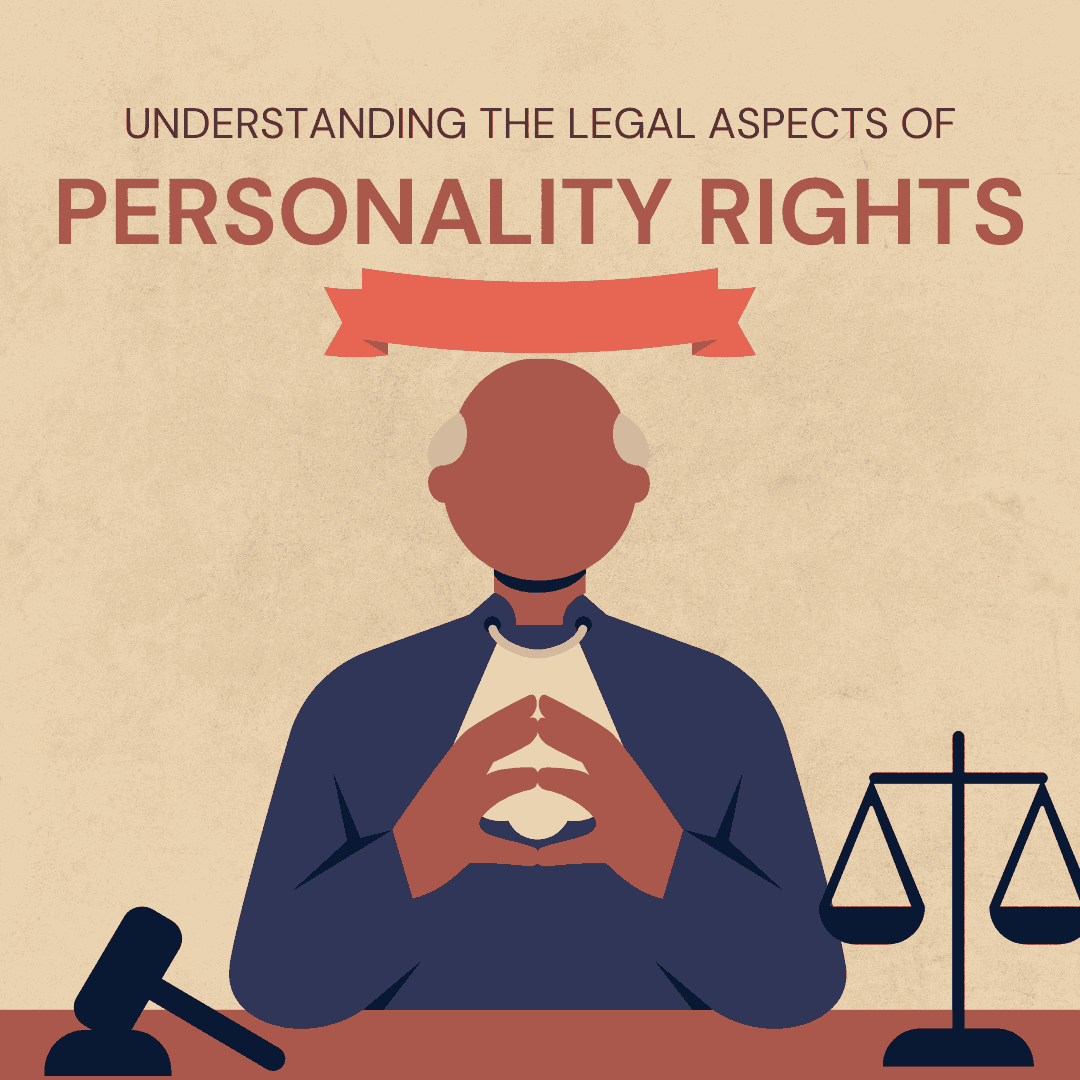Unmasking the Persona: The Evolving Legal Landscape of Personality Rights in India
In an age dominated by digital media and celebrity culture, a person's identity, their name, image, voice, and unique characteristics is not merely a private attribute but a valuable commercial asset. This commercial value gives rise to the concept of "personality rights," which is the legal right of an individual to control the commercial use of their identity. While this might seem like a concern limited to celebrities, the advent of AI-generated deepfakes and the ubiquitous nature of social media has made it a crucial legal issue for every individual. In India, where celebrity endorsements and brand associations are big business, the protection of personality rights has become a rapidly evolving area of law. While the country lacks a dedicated, codified statute for this purpose, the legal framework has been shaped by judicial interpretation, drawing upon a combination of constitutional provisions and intellectual property laws.
The legal foundation of personality rights in India is rooted in the Constitution. The Supreme Court, in landmark judgments, has interpreted the right to life and personal liberty under Article 21 to include the right to privacy. The right of publicity, which is the commercial facet of personality rights, is considered an offshoot of this fundamental right. This was affirmed in the case of ICC Development (International) Ltd. vs. Arvee Enterprises (2003), where the Delhi High Court established that the right of publicity is a distinct right that can only be held by an individual. It recognized that a person's unique attributes have commercial value and that unauthorized use of these attributes for profit infringes upon their rights.
Beyond the constitutional guarantees, personality rights in India are also protected through various intellectual property (IP) laws. The Trade Marks Act, 1999, provides a shield against the unauthorized use of a person’s name, likeness, or other identifying features as a trademark. Section 14 of the Act specifically restricts the use of a living or recently deceased person's name or representation without their consent. Similarly, the Copyright Act, 1957, offers some indirect protection, particularly for "performers" who are defined to include actors, singers, and musicians. Section 38 of the Act grants a performer's right for a period of 50 years, giving them exclusive rights over their performance and providing a basis for legal action against its unauthorized use. The common law principle of "passing off" also serves as a potent remedy, preventing someone from misrepresenting their goods or services as being associated with a well-known personality.
The judicial landscape in India has been instrumental in shaping the contours of personality rights. Early cases like the Auto Shankar Case (R. Rajagopal v. State of Tamil Nadu) (1994) laid the groundwork by linking the right to privacy with Article 21. This was further solidified by the Supreme Court's pronouncement in the K.S. Puttaswamy v. Union of India (2017) case, which declared the right to privacy a fundamental right.
In recent years, the Delhi High Court has emerged as a key forum for adjudicating these disputes, particularly with the rise of digital technologies and AI. The court has taken a strong stance against the misuse of celebrity personas, issuing "John Doe" orders that grant injunctions against unknown defendants, which is a crucial tool in the fight against online infringements.
This brings us to a series of recent and high-profile cases involving Bollywood stars, which have brought personality rights into the mainstream legal discourse. The year 2025 has seen a flurry of legal action from some of the industry’s biggest names. Actors like Amitabh Bachchan, Anil Kapoor, and most recently, Abhishek Bachchan, Aishwarya Rai Bachchan, and filmmaker Karan Johar have all approached the Delhi High Court seeking to protect their identities.
In a landmark decision in 2022, the Delhi High Court granted an omnibus injunction to Amitabh Bachchan, restraining any unauthorized use of his name, image, voice, or any other characteristic without his permission. The order not only covered traditional forms of misuse but also extended to emerging threats like NFTs and the Metaverse, signaling the judiciary's proactive approach to new technologies.
This year, the cases of Abhishek Bachchan, Aishwarya Rai Bachchan, and Karan Johar have further highlighted the challenges posed by AI-generated content and online impersonation. Both Aishwarya and Abhishek Bachchan have filed suits against websites and online platforms that were misusing their names, images, and likeness for commercial purposes, including selling unauthorized merchandise and circulating AI-generated deepfakes. The Delhi High Court has granted interim injunctions, underscoring that such unauthorized use not only leads to commercial loss but also harms the dignity and reputation of the individual. The court’s orders explicitly bar the creation and dissemination of AI-generated content, face morphing, or any other form of digital alteration that could be harmful.
The collective efforts of these stars, and the favorable judicial response, are a clear indication of a paradigm shift. They have brought to the forefront the urgent need for a more robust legal framework to address the complexities of the digital age. While the current legal provisions have proven effective to a certain extent, the absence of a comprehensive, codified law remains a significant challenge. The ongoing cases serve as a powerful reminder that in a world where a person’s identity can be weaponized with a few lines of code, the protection of one's persona is not just a commercial matter but a fundamental aspect of human dignity.

